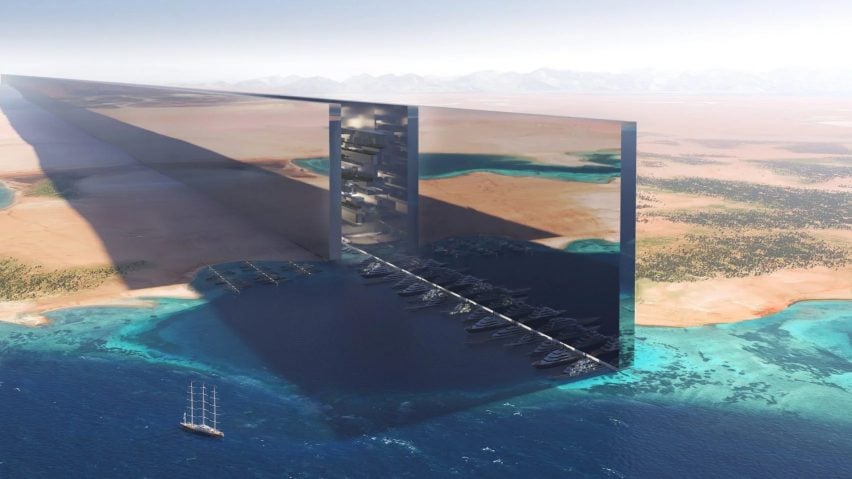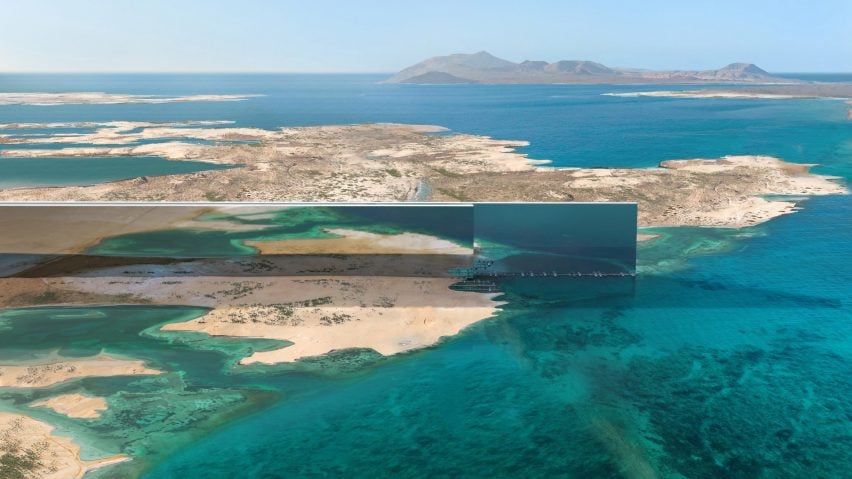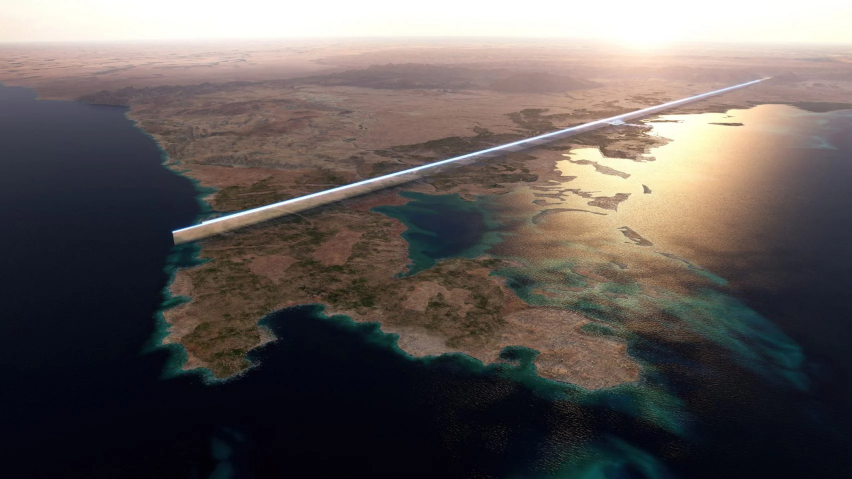
The Line megacity "to pose a substantial risk to migratory species"
The impact that The Line megacity in Neom could have on birds has been named among the most pressing conservation issues for 2024.
Planned for nine million people, the planned city in Saudi Arabia was highlighted in the Trends in Evolution & Ecology journal as one of 15 key issues of concern for global biodiversity conservation in 2024.
"It is likely to pose a substantial risk"
In the piece, titled "A horizon scan of global biological conservation issues for 2024", the journal pointed to the scale of The Line along with its planned mirrored facades as a risk to migratory bird species.
"Although marketed as being sustainable, its dimensions (500 metres high, 200 metres wide, and 170 kilometres long), design (including mirrored facades and, potentially, roof-top wind turbines), and east–west orientation at the head of the Red Sea mean it is likely to pose a substantial risk to migratory species, particularly passerine birds."

Set to be built in Saudi Arabia as part of the controversial Neom development, The Line will stretch 170 kilometres across the northwest of the country.
It is planned as a pair of parallel skyscrapers, each 500 metres high, which will sit 200 metres apart and have mirrored facades. Reflective surfaces are understood to be one of the biggest causes of bird deaths each year.
"The magnitude of The Line may pose a novel threat"
The piece highlighted that the location of The Line in a "bottleneck" for migrating birds is also a cause for concern.
"Collisions with buildings kill an estimated 365-988 million birds annually in the USA alone, and 16-42 million in Canada," stated the journal.
"The magnitude of The Line may pose a novel threat to the eastern populations of the estimated 2.1 billion migratory birds of more than 100 species that migrate from Europe to Africa in autumn each year, for which this area forms a bottleneck with downstream ecological consequences."

As few details are known about the design, and "no environmental impact assessment has yet been published", the journal suggested that there were opportunities to lessen the impacts.
"Higher collision risks are associated with lit windows and with larger expanses of continuous glass," it said. "This would suggest that there may be some opportunities for mitigating impacts."
"Designated nature corridors" set to be built into The Line
In an interview with Dezeen, Neom's executive director for urban planning Tarek Qaddumi explained that The Line's facades will be treated to reduce collisions and incorporate "nature corridors" that align with migratory bird paths.
"These exact migration paths and patterns are being mapped by a dedicated team of scientists over the next few years," he said.
"Birds that fly at different heights will also have their designated nature corridors that are designed in combination with the right glass treatment," he explained.
Among the glass treatments that Qaddumi expects to be used in the project are ceramic frits, which are among the most common ways to make buildings more bird-friendly.
Awareness of bird collisions has increased in architecture in recent years. In 2021, NYC Audubon volunteer Melissa Breyer hit headlines when she collected the corpses of over 200 birds that had flown into buildings at the World Trade Center.
In the US, city officials have been introducing more stringent guidelines to prevent bird collisions with their buildings, while the UK is lagging behind. In 2022, Dezeen found that none of the UK's biggest cities have policies in place to protect birds from deadly strikes.
The Line forms part of Neom, which is one of the world's largest and most controversial projects. It will contain 10 regions – all of which have now been announced.
Neom has been criticised on human rights grounds, including by human rights organisation ALQST which reported that three men were sentenced to death after being "forcibly evicted" from its site.
Last year experts from the UN Human Rights Council expressed "alarm" over the imminent executions. Saudi Arabia responded to the UN by denying abuses had taken place.
The renders are courtesy of Neom.